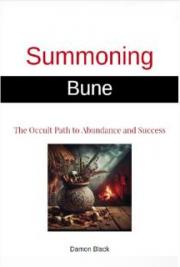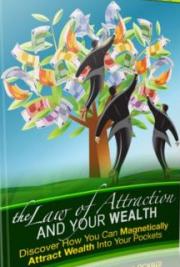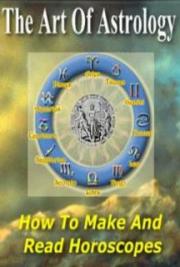Train Tracks
By K. E. Ward
Behind the Main Street bar on the lonely streets of Camden, in a little alleyway the kids called, “the place,” Jackie Stevenson waited in the midst of thick clouds of smoke and dust, for her boyfriend to finish haggling with the Broush brothers and take her home. She could hardly wait for him to return, as two cocky dudes had already tried to hit on her while he was gone. She rubbed her hands against her arms, trying to warm them. Her stockings were warm, but not thick enough to defend against the wind and chill. Loud music pounded from the entryway of the club across the street, and in the night-time rowdy atmosphere, Jackie was afraid that she was going to get mugged, or, even worse. Shivering, she clutched her bag closer to her. The high heels had proven to be the wrong choice on a night like this. Andrew had been drinking again, and undoubtedly was trying to settle his gambling debts. If things went wrong, Jackie wanted to be ready in case she had to run, so she slipped off her shoes and placed them in her spider-decorated bag.
Multi-colored strobe lights cut through the smoke and exhaust of cars traveling down the street, the advertisements of Chase’s Hot Spot. She was glad to have finally escaped from her parents’ place; after all, the tiny enclosure of a house was filled with the loud trills of yells coming from both directions. Jackie had known that they were not happy for a long time. Evidence of their discontent was showing up everywhere, including an angry little note that ended up in her bathroom as a reminder to take clothes to the dry cleaner’s. Her older brother Sammy was already graduated from high school and living at home, and Sammy and their mother were having a number of battles from day to day. Not able to handle the fighting, Jackie decided to duck out, while still unnoticed, and go clubbing in the evenings.
From a distance, a train rumbled across, blowing its loud horn and rushing across the lonely streets where taxicabs and grocery trucks waited for it to pass. As a child, Jackie would follow those train tracks home every day from school, waiting until the last minute before the train would come before jumping to the side. She often wondered which people took the train and for which reason. She mused often about the various lives and reasons for travel, jotting down stories in her journal about people who took the train.
“Hey, girl.” Jackie looked up. Above her was a girl, a bit taller than her, with short, brown hair and blue eyes with a cigarette perched from the first two fingers on her right hand. She was wearing blue jeans and a ratty t-shirt with the faded word, “Queen,” splashed across the front of it, and low-top Converse sneakers.
“Hey,” she said, trying to sound tough.
The girl said, “Have you had enough of this scene?”
“I don’t know what you’re talking about.”
“I don’t know about you, but this place seems kinda seedy. What’s your name?”
“Jackie,” she said, feeling shy.
“My name’s Christine. Wanna go somewhere and hang out?”
Jackie wasn’t sure what to say. She thought about the dangers of meeting strange people on the street, wondered why this girl would want to go somewhere with her when they had barely exchanged two words, and why she had chosen to approach her in the first place. “Yeah, sure, why not.”
Christine’s house was a dirty looking three-level split-level. She could almost call it, “seedy,” although that was exactly the word she had just used to describe the scene in front of the club. In her room, Christine sat on the bed and cradled a red pillow in the shape of a pair of puckering lips, while Jackie sat on the couch, noticing the posters of rock stars on the walls and the messiness of the room.
“Where’d you come from?” she asked. She didn’t recognize her from school.
“I just moved here. I’m adopted.”
“How old are you? I’m fifteen.”
“I’m fifteen, too.” And she looked it. Christine had a masculine quality about her, and she thought maybe she was a lesbian. Jackie wasn’t a lesbian; she was straight. But this cool-looking girl across from her seemed to be everything she had never been: a bad girl. A troublemaker. A victimized daredevil. On the edge between innocent and criminal, Jackie shuddered to think what kind of problems she had had. She was fascinated by her. And yet, she was just a tad frightened by her. She could have been older, seventeen judging by her confidence, but Jackie knew better.
I’ve never been adopted,” she said. There was a long silence between the two of them.
“That’s okay. We’re all unique. Nothing to feel bad about. I don’t mind it so much.”
“Tell me more about yourself,” she said.
They talked for a few hours. Jackie listened to Christine tell her story about how her biological father had murdered her mother, and how all of her siblings had skipped town and disappeared. She talked about drug use in the family, how her father had cheated on her mother, and how she had been locked in the basement for three weeks. She talked about coming here, and how much she liked her adopted parents, and how much more freedom she got here, and how they bought her things.
Their conversation slowed, and after a few more minutes, Jackie said, “I guess I had better get going.”
“Well, thanks for coming over. It was really nice to meet you. Come over again sometime and we’ll have some fun. Have a good night.”
Jackie walked out of the house still wearing her high heels and realized how cold it had gotten. She had a premonition that something dramatic was going to happen with this new friend, but she didn’t know what that would be. She looked up sadly at the house. She really wanted to get to know her more.
V
Earlier Versions & Deleted Scenes from The Heart Grows Stronger
The first excerpt is perhaps the first version of the first couple of pages of my first novel, which I wrote when I was very young.
She looked out beyond the French doors into the vast blackness that surrounded their 27th story penthouse apartment, the sky growing dimmer and dimmer as the minutes slipped by into twilight. She sighed, realizing how dark it had gotten, and wondered how night had managed to creep up on her, like a cat getting ready to pounce. The apartment was enveloped in darkness, and only the lights from the city cast their glow against the room, an effect which gave the sense of some eerie, supernatural presence. Instead of getting up to turn on a light, she rested her head against the glass of the door, running her hand along the smooth surface. She looked down at the chaos of New York City, following the silent line of cars, the thousands of flickering lights, the perfect and controlled, such a startling contrast to the awful reality of it. She doubted she had ever seen such a clear view of the city before, for it was amazingly dry and crisp, a rarity she welcomed openly. In Seattle it seemed as though the sky was always that dingy, gray color. From somewhere behind the Empire State Building a sliver of a moon was trying to peek out from several wisps of silvery clouds, casting its weak light upon the dramatic, familiar skyline of high rises. She lifted her hand to the window, looking out at something she thought she saw just beyond the balcony, but then retreated as soon as she realized it was only her reflection. A sudden chill made her turn away from the window and slip back into the darkened apartment, suddenly feeling very exposed. She hastily tossed the curtains back in place, retreating from the terrace.
Strange, she thought. She could have sworn she’d seen something, like some tiny movement from one of the high rises just across the road. It was as though someone were watching her… but… it was probably just her imagination. She tossed the notion out of her mind. After all, she had been traveling all day, and coming home to an empty apartment with no numbers to call was bound to make her a bit paranoid. Usually it was her favorite thing to do at night before Michael came home, whenever they were in New York—she always felt so safe being able to gaze down upon everyone in the city, when no one could see her. But tonight, it seemed to offer her no protection at all. She had felt the same way since she had arrived here this afternoon, and it still gnawed at the back of her mind, threatening to rip her apart. No, this night, this evening, she felt like a prisoner, not only captive of the concrete walls around her, but of her fears, as well. She glanced at the closed drapes and sighed. She would give anything to be out there right now, to be free to go where she pleased.
But she was not allowed to leave. She was to stay at home until Michael came home and kissed her hello. Then she would sit with him beside the fire and pour him a glass of wine, and then listen as he complained about the events of his long, cumbersome day. She would put on that long, red dress.
Deleted Scene:
Michael seemed very agitated that day. Julie had noticed it all day long, and especially when he began to yell at many of his employees. What was going on? There was tension in the office. After Michael had gone back into his office, Julie decided to wait a few moments and then peek her head in. She pushed the door slightly ajar. What she heard was surprising.
“Jeffrey, you know as well as I do that my client will simply not agree to your demands,” he said, in a gruff, angry-sounding voice. She pushed the door open even further, and saw that he was holding up a tape recorder to the phone.
Michael’s cigarette smoke was overwhelming the office.
Now, the reason why I share these with you is for you to get an idea of my voice and my first attempt at a novel when I was twelve years old. Below you will see a charcoal sketch I made of my very first heroine, Julie:

And below you will see an oil painting I later made of her:

Julie Anne Miller, born Julia Anne Miller, daughter to Candace Miller, whom they call, “Candy,” although I did not tell you this in the book. I also did not tell you I developed my character so much so that I knew her date-of-birth, which of course I made up. March 14th, 1968.
Todd Aaron Brooks, the hero, also born in 1968, was the son of divorced parents and had no siblings.
Michael Valentino, formerly called Michael Julian Crawford, was more of a mystery. I changed his age and made him younger. He was supposed to have been born in the 1940’s, and remember, this is a piece of historical fiction. Did he have Italian parents which came over to the United States, or was he a bastard child to a member of the Cicillian Mafia? Or did he spend longer in Italy than we had thought and joined the Italian army? His past was mysterious. If he was a member of the Mafia, then was he involved in drug trafficking? Around this time of the 1980’s, crack-cocaine showed its head for the first time. Was he by any chance a crack boss, dealing also with the Mexican Mafia and drug lords? Did he smoke crack behind Julie’s back?
Well, anything to make him sound evil would have been perfect for the book, but I decided to make it short and sweet, leaving things up to the imagination. I find my first work of fiction the most thrilling, the most romantic, and the most popularly appealing of all of my stuff. Maybe The Incident is my favorite, but the first one was so special to me because I was so young when I conceived of the story, and I fell in love with both the hero and the villain. I even drew someone’s portrait one time in high school and changed it to make it look like the villain’s face, but I do not have that portrait anymore.
The Heart Grows Stronger, whose title I could not think of for so long, was so clear in my imagination that I saw it like a movie running though my head.
Needless to say, the written word and imagination do allow us to picture things. The Heart Grows Stronger, The Incident, and the others were molded like a sculpture made of art clay. I crafted them for so long. I dreamed about them for so long. And finally, I had the nerve to get them published.
So, to sum up my art and writing, I would like to put it this way: I told you that when I was in elementary school I couldn’t decide whether to be an artist or a writer. Both draw upon the imagination and urge us to look deeper into ourselves for meaning. I like the words of St. Catherine of Siena: “Know Thyself.” And the constant search for the self is what we share with other people, when we love. We are all beautiful. But the reason we need art and entertainment is because we constantly need to be reminded of this. Both creating and enjoying art helps. Art is a depiction, art in all its forms, rather than a duplication. And true art means that I love with such sensitivity that I would never dare to criticize or insult that which I am depicting.
I have had a long career in creative writing, as I wrote many short stories as a child, and started my first novel when I was twelve years old. Visual art, too, I started when I was very young. I wish I could show you my still life and portraits from when I was younger, because they were so very realistic, but I have lost all of them. My art has changed. Some might say I have less of a perspective, that I stopped developing as a person and came down with brain damage. But I like to think that my art has metamorphosed into something even more than just realistic. I have shown you an account mostly of my recent work. I am fairly sure that the excerpt from a previous version of The Heart Grows Stronger, is one from when I was twelve years old. My first work, unlike the rest of them, was self-published in 2012 after a little bit of free editing by my mother and a time crunch. I was the one responsible for getting rid of any errors before the book went to print, as there was no editor at the publishing company who would edit it further. As I have mentioned before, my first two books were edited by my mother. She did get upset by some of the subject matter, but they ended up making us closer together. She did not edit my subsequent books. I used to print out my manuscripts and have her scribble with pencil on them, and then I would go back to the computer and adjust it. I liked Annie Dilliard’s The Writing Life, in high school.
To conclude, I hope you have enjoyed this book. All of the art and writing is heartfelt, and I did the best job I think I could, and I appreciate your time with me, as I know time is precious. Please take these words and consider creativity of your own. After all, creativity is a cooperation, not for one person to be a star above another one; pride is deadly, and I prefer the concept of fairness for all.
* * *









